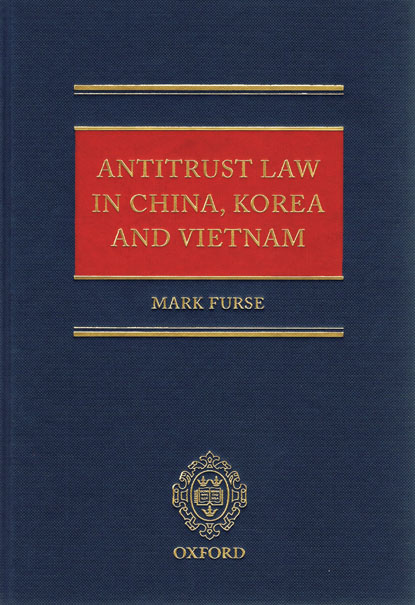
Following China's entry into the WTO in September 2001, it has been keen to establish itself among trading parties as a market economy. In recent years it has become one of the largest trading nations in the world, and is a source of substantial inward investment. In recognition of these developments, the government has undertaken a major overhaul and modernisation of its competition law, superseding the outdated and disparate provisions previously in place, with new legislation in 2007.
China's near neighbours, Vietnam and South Korea, likewise have vibrant economies and have had strong trading relationships with the west for many years. This book is the first to cover the practical implications of the developments in competition law in these countries.
It is aimed at practising lawyers and company advisors, giving a clear description of the new antitrust law in China, the established antitrust law in Taiwan and Korea, and the underdeveloped law in Vietnam. It also considers developments in Hong Kong, which is in the process of introducing a general law of antitrust. The first part of the book gives a concise introduction to antitrust laws and policies in the jurisdictions covered, as well as an introduction to standards in antitrust law for those new to the area. China, Taiwan, Korea and Vietnam each have five chapters devoted to discussion of the regime in general, its institutional shape, the substantive laws relating to agreements, dominant or monopoly firm conduct, merger control and procedures.
The relevant legislation is explained and the principles clarified by references to guidelines, practice and relevant decisions and cases. In the case of Hong Kong a single chapter discusses the proposals brought forward by the legislature. Particular attention is paid to the extent to which antitrust laws in each jurisdiction may be applied to parties who are not citizens in those jurisdictions.
This book is invaluable to lawyers advising clients engaging in international trade and commerce with and within these territories, and besides giving a clear explanation of the position of the law, it also contains translations of the core relevant legislation for each of the jurisdictions. Academics specialising in international competition law will find this a co